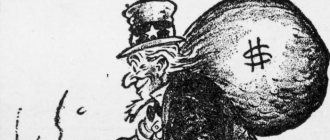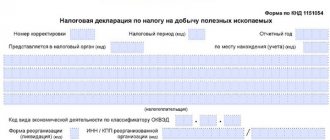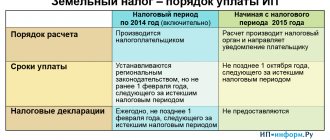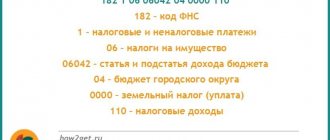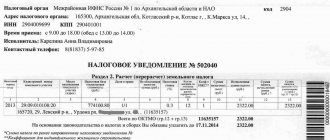Excise tax is a special tax that is levied on certain types of goods and transactions with these goods. This tax is included in the price, and the burden of payment falls on the shoulders of the end consumer of this product. Only highly profitable products are subject to excise tax; the main purpose of such a tax is to obtain sufficient funds for the budget, as well as to limit the consumption of products that harm people and the environment.
In what cases does the obligation to pay excise taxes arise?
Excise taxpayers have a permanent status only if they regularly carry out transactions subject to this tax. For others, such a duty may arise from time to time. The fact is that any of the above-mentioned entities must pay excise tax only when they carry out any of the transactions subject to excise taxes, i.e. operation with excisable goods. If such circumstances have not arisen, then the subject is not considered an excise tax payer. This is directly stated in paragraph 2 of Art. 179 of the Tax Code of the Russian Federation.
What is the tax period for excise taxes?
In Art. 192 of the Tax Code of the Russian Federation determines that the tax period for excise taxes corresponds to a calendar month. Both organizations and individual entrepreneurs must pay excise taxes if they sell the relevant goods or products. In addition, payers of this type of tax are persons moving goods through the customs of the Eurasian Economic Union.
The tax period for taxable transactions is determined at the moment when excisable goods are sold (transferred). The date of such operation, in turn, is considered to be the day of shipment.
Having paid excise taxes, the taxpayer has the right to count on deductions specified by law. By their amount, the company can reduce the amount of tax intended for contribution to the budget.
For additional information about excise tax payers, see the material “Who are excise tax payers (nuances)?”
What goods are excisable?
Excise goods are:
- ethyl alcohol, including denatured ethyl alcohol, raw alcohol, wine, grape, fruit, cognac, calvados, whiskey distillates;
- liquid alcohol-containing products with a volume fraction of ethanol of more than 9%, except for certain types:
- medicines;
- veterinary drugs;
- perfumery and cosmetic products;
- recycled alcohol production waste;
- wine materials;
- alcoholic products with a strength of more than 0.5%, with the exception of food products according to the list approved by Decree of the Government of the Russian Federation of June 28, 2012 No. 656;
- tobacco products;
- passenger cars;
- powerful motorcycles (with an engine over 150 hp);
- petrol;
- diesel fuel;
- motor oils;
- straight-run gasoline;
- household heating oil produced from diesel fractions of direct distillation and (or) secondary origin, boiling in the temperature range from 280 to 360 degrees Celsius;
- benzene, paraxylene, orthoxylene;
- aviation kerosene;
- natural gas (in cases provided for by international treaties of the Russian Federation).
Formula for calculating excise duty
The procedure for calculating the amount of excise duty depends on what product your company sells, and therefore, what rate is used for calculation - flat or combined.
Calculation at a fixed rate
This scheme applies to all categories of goods, except tobacco products. The calculation formula looks like this:
A = ObReal * St
where ObReal is the quantity of products sold in established units of measurement;
St – approved tax rate.
Example No. 1.
produces alcoholic beverages with an alcohol content of more than 9%.
05/18/2016 Guild purchased anhydrous alcohol (150 l) for subsequent processing. Purchase price 14,520 rubles, VAT 2,214 rubles. Previously (04/14/2016), the Guild transferred an advance payment in the amount of 75,000 rubles to the budget. (150 l * rate 500 rub./l).
In May 2021, Guild processed alcohol and released a product - Salyut vermouth in the amount of 1,810 bottles (alcohol content 11%). Vermouth “Salute” was packaged in 0.75 liter bottles. Thus, the Guild used 149 liters of alcohol (1,810 bottles * 0.75 l * 11%).
To calculate the excise tax payable in May, the Guild’s accountant took into account the volume of alcohol content in the vermouth sold:
1,810 bottles * 0.75 l * 11% * 500 rub./l = 74,500 rub.
The difference between the amount of the advance payment (75,000 rubles) and the actual accrued excise tax (74,500 rubles) will be reported by the Guild accountant for deduction in subsequent tax periods.
Combined rate calculation
Calculation at the same time at both ad valorem and flat rates is carried out only when calculating the excise tax on tobacco products. If your company is engaged in the production of tobacco products, then you need to calculate the excise tax using the formula:
A = Atv + Aadv
Where Atv is the amount of tax calculated at a fixed rate;
Aadv is a tax determined at an ad valorem rate.
The procedure for calculating tax at a fixed rate is applied similarly to the calculation of shares for other goods; the principle of its use is described above.
In order to determine the excise tax at an ad valorem rate, use the formula:
Aadv = CalcSt * St
where CalcSt is the estimated cost of goods sold;
St – approved excise tax rate.
The estimated cost of tobacco products is determined according to the selling price. Upon completion of the calculation, the resulting tax amount must be compared with the minimum established in accordance with the Tax Code. The larger of the two amounts must be paid to the budget.
Example No. 2.
sold “Marka” cigarettes – 7,420 packs (148,400 pcs.) at a price of 85 rubles/pack.
The Premier accountant calculated the excise tax as follows:
- amount at a fixed rate: 148,400 pcs. * 1.250 / 1000 = 185.500 rub.;
- amount at ad valorem rate: (85 rubles * 7,420 packs) * 12% = 75,648 rubles;
- total excise tax payable: 185,500 rubles. + 75.648 rub. = 261.184 rub.
Next, the accountant compared the calculated amount (261,184 rubles / 148,400 pieces * 1000 pieces = 1,760 rubles / 1000 pieces) with the minimum indicator (1,680 rubles / 1000 pieces). Therefore, the amount to be paid is 261,184 rubles. (at the rate of 1,760 rubles per 1000 pieces).
Transactions giving rise to excise duty
The list of such operations is contained in Art. 182 of the Tax Code of the Russian Federation. Generally speaking, these include:
- any sale of excisable goods;
- transfer of produced excisable goods:
- the processor to the seller, as well as their receipt by the processor as payment for his services;
- within the organization for the further production of non-excisable goods (except for straight-run gasoline used for the further production of petrochemical products, or denatured ethyl alcohol for the production of non-alcohol-containing products if the organization has the necessary certificates to carry out operations with these substances);
- for your own needs;
- in the authorized capital, etc.;
- to a participant upon leaving the society;
- for processing on a toll basis.
- import of excisable goods into the country;
- receipt of certain types of excisable goods, including:
- denatured ethyl alcohol;
- straight-run gasoline;
- benzene, paraxylene or orthoxylene;
- aviation kerosene.
Attention! To carry out operations with certain goods, certificates for production, processing, etc., provided for in Art. 179.1–179.3 Tax Code of the Russian Federation.
The group of taxes to which the excise tax belongs: is it a direct or indirect tax?
To determine which group of taxes excise taxes belong to , we detail the properties of direct and indirect taxes.
The main feature by which taxes are divided into direct and indirect is the method of their collection. In this case, the tax applies to the group:
- direct - if it is established directly on the income or property of the taxpayer, the use and ownership of which is justified by taxation (income tax, property tax, etc.);
- indirect - if it represents a premium to the price of a product (work, service), the payment of which is passed on to the consumer. The subject of direct tax is the seller of the goods, while the actual payer is the consumer.
Excise taxes belong to the group of indirect taxes, one of the distinctive features of which is the regulation of consumption of certain types of goods. At the same time, “classmates” of the excise tax - taxes that fall into the group of indirect taxes despite their belonging to this group, have their own tasks and properties - more on this in the next section.
For details on direct and indirect taxes, see the article “What taxes are classified as direct and indirect (table)?”
What is not subject to excise taxes?
Provided that separate records are maintained, the following are not subject to excise taxes (Article 183 of the Tax Code of the Russian Federation):
- transfer within the organization of some excisable goods for the production of other excisable goods; the exception is provided in subpara. 22 clause 1 art. 182 of the Tax Code of the Russian Federation for ethyl alcohol;
- export of excisable goods, including if they are exported by the owner - the customer of processing or someone on his behalf, as well as the import of such goods into the port SEZ from the rest of our country;
- primary sale or transfer of confiscated, ownerless or rejected excisable goods for industrial processing under the control of customs or tax officials or for destruction;
- transfer within the organization:
- produced ethyl alcohol for the further production of alcohol-containing perfume and cosmetic aerosols, household chemicals;
- rectified ethyl alcohol produced from raw alcohol, to the division producing alcoholic beverages;
- produced alcoholic distillates (wine, grape, fruit, cognac, Calvados, whiskey) for aging or blending for the purpose of further production (bottling) of alcoholic products by the same organization;
- some operations with aviation kerosene and benzene, paraxylene and orthoxylene.
What is included in the state indirect tax system besides excise taxes?
Let us dwell on the 2 main taxes that, together with excise taxes, are included in the group of indirect taxes - VAT and customs duties.
When comparing excise taxes with VAT, one can note the characteristics that distinguish them, for example:
- individualization of rates - for excise taxes, rates are set in different amounts for specific groups of transactions or excisable goods, while VAT rates are limited to three values (0, 10 and 18%) and are applied to a wide range of goods (works, services);
- types of tax rates - for excise taxes, fixed, ad valorem and combined rates can be applied, while VAT is always set only as a percentage of the tax base;
- relation to the production process - excise taxes have no relation to production costs and do not depend on them in any way, and VAT is levied on the value formed at each stage of production of any product (work, service);
- other distinctive features.
A comparison of excise taxes with customs payments shows that, unlike VAT, customs duties are similar to excise taxes in terms of individualization of rates, but depend not only on the type of goods (imported, exported or moved through the territory of the Russian Federation), but also on the country of issue and specific conditions established by interstate contracts.
Are individual entrepreneurs and special regime employees recognized as excise tax payers?
Tax Code of the Russian Federation in Art. 179 determines that excise tax payers are not only legal entities, but also individual entrepreneurs. The main condition here is the same for both categories of business entities - in order for them to be assigned this status, they must carry out the appropriate operations. The exception is resellers, but they will be discussed below in a separate chapter.
For special regimes, the situation requires a separate explanation: they may be excise tax payers, but they cannot always apply special regimes. Let us immediately note that we are talking here only about persons on the unified agricultural tax and the simplified tax system. We’ll talk about imputation a little lower.
Let us now explain our conclusion in more detail.
Systems such as the Unified Agricultural Tax and the simplified tax system are unacceptable for those who are engaged in the production of excisable goods, including on a toll basis (subclause 2, clause 6, article 346.2, subclause 8, clause 3, article 346.12 of the Tax Code of the Russian Federation, letters from the Ministry of Finance of Russia dated March 18, 2011 No. 03-07-06/70).
Important! Production for the purposes of the “excise” chapter of the Tax Code of the Russian Federation means not only the release of excisable goods in themselves, but also:
- bottling of alcoholic beverages and beer, which is part of the overall production process;
- any mixing of goods in places of their storage and sale (except for public catering), which results in an excisable product subject to excise tax at a higher rate than the raw materials themselves.
When carrying out transactions not with produced, but with purchased goods, it is possible to apply simplified taxation and agricultural tax.
It should be borne in mind that these special regimes do not exempt persons using them from paying excise taxes. After all, in paragraph 3 of Art. 346.1 and paragraphs. 2–3 tbsp. 346.11 of the Tax Code of the Russian Federation, excise taxes are not listed among the taxes that are replaced by special ones.
This means that a simplifier or a payer of the Unified Agricultural Tax, when performing excisable transactions permissible for him, must fulfill all the duties of an excise payer.
As for UTII, this regime does not establish any prohibitions or restrictions on working with excisable goods, but it also does not provide exemption from excise taxes. Therefore, the UTII payer can also be recognized as an excise tax payer.
How to calculate and pay excise taxes
Excise goods are listed in Article 181 of the Tax Code of the Russian Federation. First of all, it is ethyl alcohol. It is recognized as an excisable product regardless of what raw materials it is produced from (food or non-food). Denatured ethyl alcohol is also an excisable product - it contains denatured additives. These additives make alcohol suitable only for technical purposes. Denatured alcohol can be used in the production of non-alcohol-containing products, that is, products for which the raw material is denatured alcohol, but which in finished form does not contain alcohol in its composition (for example, cellulose). Chapter 22 of the Tax Code of the Russian Federation provides for a special procedure for calculating excise taxes on denatured alcohol used for the production of such products.
In addition, excisable goods are alcohol-containing products, alcoholic products, beer (beer is not recognized as alcoholic products, it is an independent type of excisable goods), tobacco products, passenger cars, motorcycles with an engine power of over 150 hp. With.
